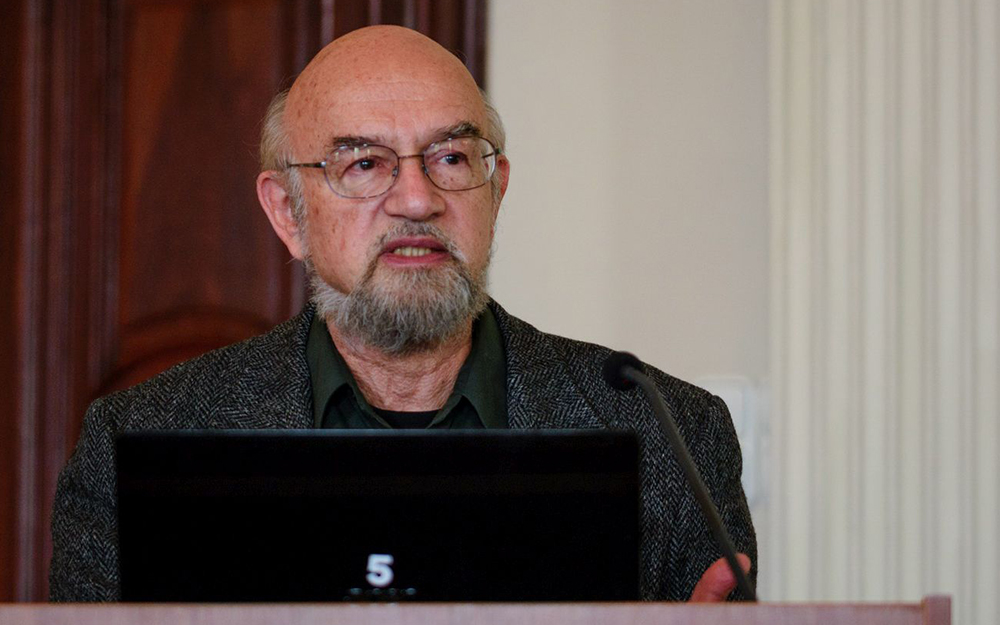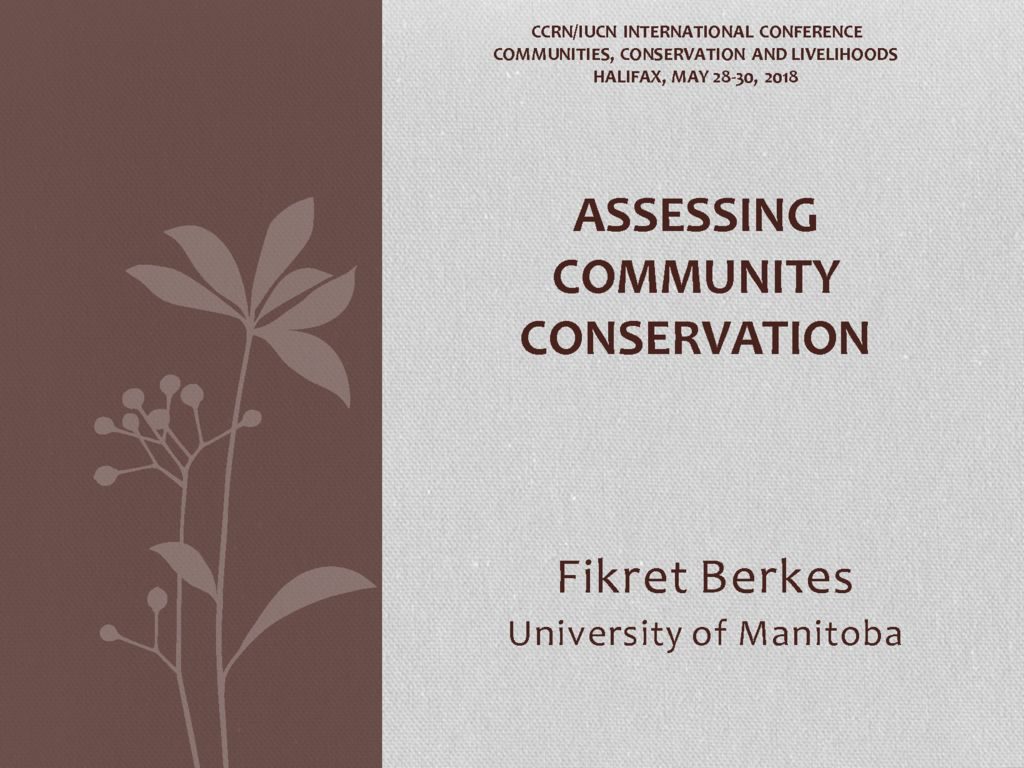
05 Apr Fikret Berkes: Assessing Community Conservation
“ ‘Communities, conservation and livelihoods’ is a big research agenda because it cuts across disciplines and because there are so many variables potentially involved that it is difficult to find an entry point. Based on some of our work with the CCRN, the issue may be addressed in four steps.
First, we need to identify the resources and the actors at the relevant space and time scales. People and environment need to be considered together as social-ecological systems (SES), since social (human) and ecological (biophysical) subsystems are linked by mutual feedbacks, and are interdependent and co-evolutionary. Second, we need to identify conservation-related knowledge and practices: what makes community conservation work, and how do resource users interact with their environment? Third, governance, including commons institutions and any power-sharing arrangements, is important. Who are the rights-holders? Who makes decisions and controls the resources on which livelihoods are based? Fourth, in a rapidly changing world, how does the SES respond to change? What makes the SES resilient (or not)? Social learning toward increasing adaptive capacity and building resilience can be fostered, for example, by collaborative learning networks and knowledge co-production. These four steps can lead to community conservation assessment, followed by asking what can be done better and returning to step one, in the spirit of the adaptive management cycle.”
– Fikret Berkes (University of Manitoba)
Key Themes:
Factors of Success in Community Conservation, Governance, Rights & Conflict, Engagement, Education & Empowerment, Climate & Environmental Changes



